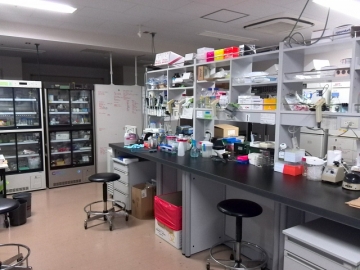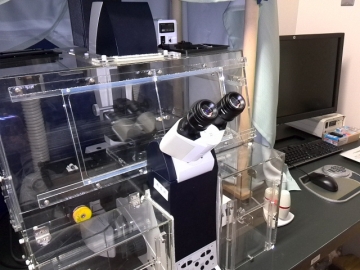Research
Introduction
Since 1981, cancer has been a top leading cause of death in our country and a novel action is an urgent social challenge. In Department of Molecular Genetics, we aim to study a basic biology underlying cancer and establish novel diagnostic and therapeutic modalities based on findings from the fundamental researches. We have largely focused on three major research directions to understand the molecular mechanisms of breast cancer development: 1) Uncovering DNA damage repair function and genome stabilization mechanism, 2) Uncovering hormone-dependent cellular proliferation, and 3) Determining how the tumor microenvironment contributes to cancer development and progression. Utilizing a wide variety of approaches in genomics, molecular biology, biochemistry and informatics, we are addressing an integrative understanding of multidisciplinary analyses.
Ongoing projects
1.Molecular Mechanisms of Breast Cancer Progression
◆ Molecular mechanisms of metastasis, invasion, recurrence of tumor
◆ Uncovered molecular functions of hereditary breast cancer genes, BRCA1 and BRCA2
2.Cancer Genomics Research
◆ Cancer genomics research with Next-Generation Sequencing (NGS)
◆ Identification of genes in clinical specimen by genome-wide association studies
3.DNA Damage Repair and Genome Instability
◆ BRCA2 function in S-phase chromosome
◆ Paclitaxel-induced synthetic lethality mechanism in BRCA2 deficient tumor cells
◆ Cell cycle-dependent DNA double strand break repair
4.Hormone-Dependent Breast Cancer Cell Growth
◆ Estrogen-dependent BRCA2 expression
◆ Molecular mechanisms of metastasis, invasion, recurrence of tumor
◆ Uncovered molecular functions of hereditary breast cancer genes, BRCA1 and BRCA2
2.Cancer Genomics Research
◆ Cancer genomics research with Next-Generation Sequencing (NGS)
◆ Identification of genes in clinical specimen by genome-wide association studies
3.DNA Damage Repair and Genome Instability
◆ BRCA2 function in S-phase chromosome
◆ Paclitaxel-induced synthetic lethality mechanism in BRCA2 deficient tumor cells
◆ Cell cycle-dependent DNA double strand break repair
4.Hormone-Dependent Breast Cancer Cell Growth
◆ Estrogen-dependent BRCA2 expression



